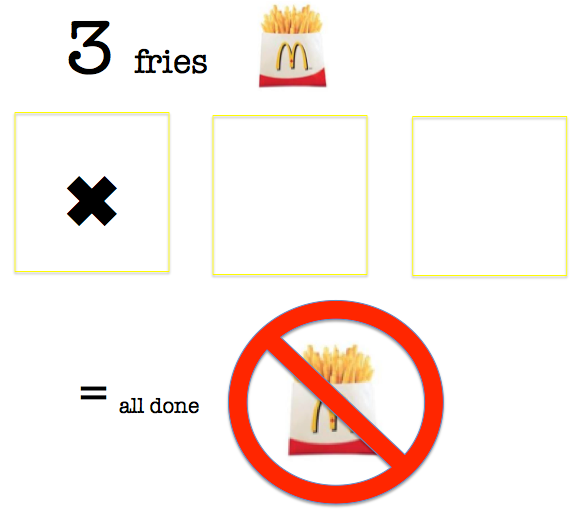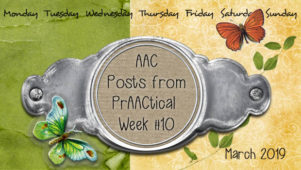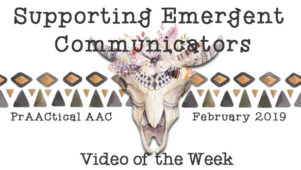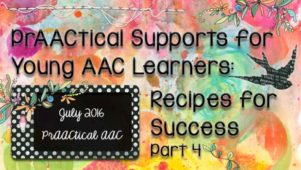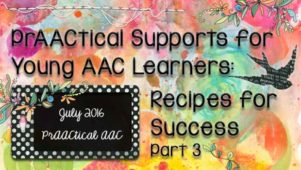10 Premises for Teaching Requests to Beginning Communicators
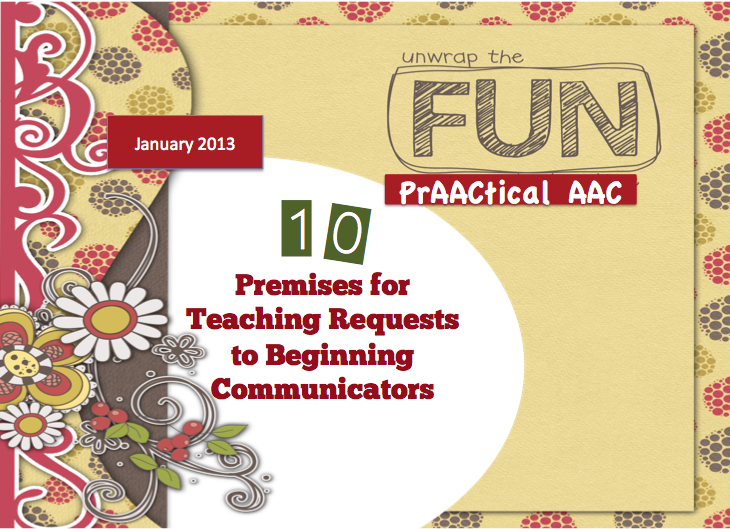
 Requesting is a communication skill that is often a fun goal to target because the end result should be ‘giving’ the learner what they want. Here are some underlying premises when teaching requests:
Requesting is a communication skill that is often a fun goal to target because the end result should be ‘giving’ the learner what they want. Here are some underlying premises when teaching requests:
- The learner LOVES or places IMPORTANCE on what they are requesting
- The facilitator may need to LOOK for & ACCEPT what the learner prefers
- MOTIVATION and INTEREST can be TAUGHT with frequent and varied practice in predictable routines
- Communication temptations give requesting more CLARITY for the learner
- Learners can request WITHOUT being asked a question (in fact, it helps with spontaneity)
- Requests can be facilitated through CHOICE MAKING
- Requests and choices GO WAY BEYOND food & objects
- The facilitator can MODEL requesting and choice making and then give the learner a turn
- There can be monthly, daily, hourly, minute, or even second CHANGES in preferences, motivations, and interests
- Frequent OPPORTUNITIES for requests and choices are the key to TEACHING SPONTANEOUS communication
Don’t worry, if requests get over used (it is a good problem to have) because once that happens then you can vary how to honor the overused request (i.e.,visual limits – 3 breaks per day, 1 McDonald trip per day/week, etc), “sorry, no more”, “later”, etc.).
Filed under: PrAACtical Thinking
Tagged With: beginning communicators, choice making, communication temptations, requests
This post was written by Robin Parker




